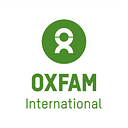Justice for Berta Cáceres and our planet’s guardians

By Gabriela Bucher, Executive Director of Oxfam International
Land and environmental defenders, the everyday guardians of our world’s fragile ecosystems, commonly face harassment, illegal surveillance, blackmail, sexual assault, forced disappearances and murder. More than four defenders were killed every week in 2019 — the deadliest year on record — and scores more were silenced by threats, violent attacks, bogus criminal charges and smear campaigns.
Now, COVID-19 has made protecting their homes and fighting for a fair future for us all and our planet ever-more difficult and dangerous.
Last year alone, at least eight defenders have been killed and disappeared in Guatemala, while armed groups in Colombia and Honduras are taking advantage of lockdowns to target defenders isolating at home.
Governments across the globe have used the pandemic as an smokescreen to further restrict defenders’ right to free speech and put them under surveillance, shut down and criminalize protests, pass controversial anti-terrorism laws that could be used to stifle activism, and roll back on hard-earned environmental regulations and protections.
Illegal logging — which is spreading COVID-19 to indigenous land defenders and their communities — and acts of violence have surged across the Gran Chaco and Amazon, with little government oversight. And while lockdowns have kept defenders from advocating against poor environmental practices by extractive industries, in several countries mining has been declared an “essential service”.
At the same time, threats and attacks against defenders have gone fully or partially unpunished.
This pandemic is the defining global health and economic crisis of our time, yes, but it is also a human rights and justice crisis. Urgent action is needed.
A heart-breaking example of this crisis: there is still no justice today, on the fifth anniversary of her assassination, for Berta Cáceres.
An award-winning environmental and indigenous rights activist, Cáceres led peaceful protests against the construction of the internationally financed Agua Zarca hydroelectric project on the Gualcarque river in Honduras. Construction began without the government ever consulting with the indigenous Lenca community, in violation of international agreements.
Prior to her murder, Cáceres repeatedly received threats on her life and warned her name was on a military hitlist.
Her assassination triggered worldwide outrage and calls for justice, forcing Dutch development bank FMO, Finnish finance company FinnFund and the Central American Bank of Economic Integration (CABEI) — which had pledged loans worth $44 million — to withdraw from the project.
In November 2018, seven men were convicted of carrying out Cáceres’ murder, which the court ruled was ordered by executives of Desarrollos Energéticos S.A. (DESA), the Honduran energy company developing the dam. This was an important step.
Yet, after all this time, the intellectual authors of her murder — the ones who gave the order and paid the bill — remain free. The whole truth must be uncovered, and all those responsible for this horrendous crime, not just those directly involved, be held to account in court.
David Castillo, a former military intelligence officer believed to be the link between the perpetrators of the crime and those who bankrolled it, is the only DESA executive charged for the murder of Cáceres. His lawyers are using all kinds of foot-dragging tactics to quash the case — Castillo’s evidentiary hearing, for example, has been postponed ten times since he was arrested nearly three years ago. Their end game is clear: drag out court proceedings until September 2021, when Castillo’s pre-trial detention period runs out.
Castillo is in preventive detention because he attempted to flee the country prior to his arrest. We cannot risk this happening again.
Because of COVID-19 restrictions, Cáceres’ family cannot be present in the courtroom. It is imperative that the trial be transmitted live — something that Castillo’s lawyers have regularly opposed.
Honduras’ great debt of justice to Cáceres, her family and community does not end here. Construction of the project was halted after her assassination, but the construction and operation permits to DESA have not been revoked. In 2018, on the second anniversary of her mother’s murder, Olivia Zúñiga Cáceres introduced a bill, known as the Berta Cáceres Law, to cancel all hydro concessions illegally granted to DESA along the Gualcarque river — including Agua Zarca. It has still not been accepted for debate by the Honduran Congress.
And in a case known as the ‘Gualcarque fraud’, Castillo is among 16 people, including public officials, indicted on corruption charges including fraud and using false documents in the approval of the Agua Zarca project.
Justice can no longer be denied. Failure to act leaves all land and environmental defenders, and our planet, at risk.
